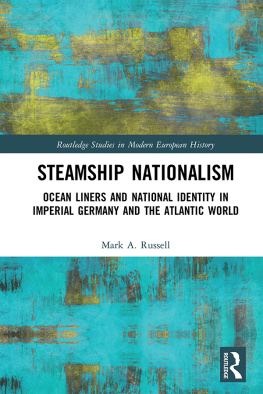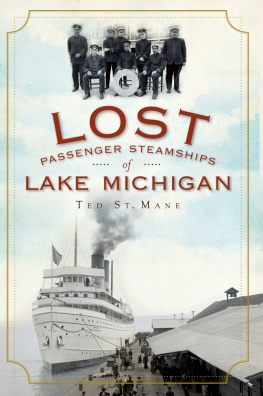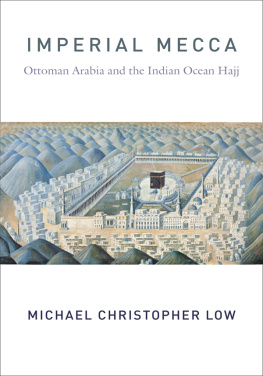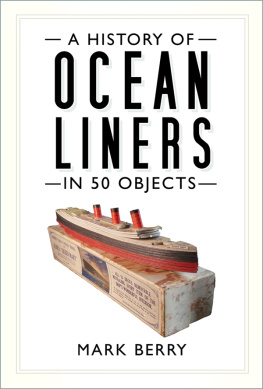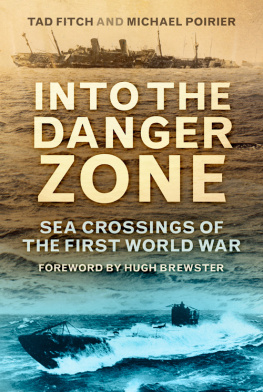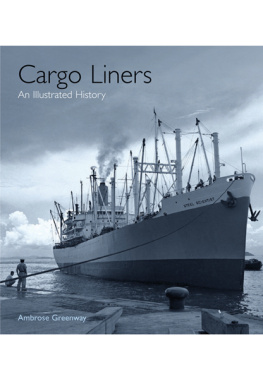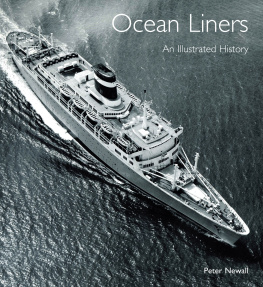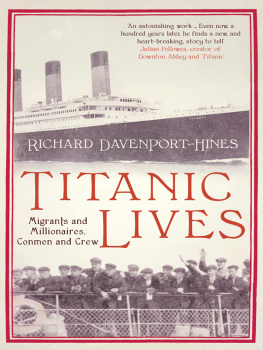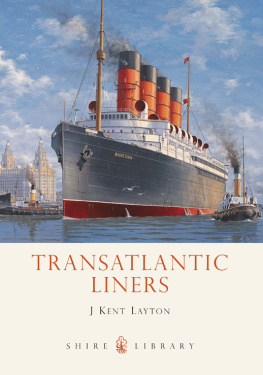Steamship Nationalism
Steamship Nationalism is a cultural, social, and political history of the S.S. Imperator, Vaterland, and Bismarck. Transatlantic passenger steamships launched by the Hamburg-Amerikanische Packetfahrt-Aktien-Gesellschaft (HAPAG) between 1912 and 1914, they do not enjoy the international fame of their British counterparts, most notably the Titanic. Yet the Imperator-class liners were the largest, most luxurious passenger vessels built before the First World War. In keeping with the often-overlooked history of its merchant marine as a whole, they reveal much about Imperial Germany in its national and international dimensions. As products of business decisions shaped by global dynamics and the imperatives of international travel, immigration, and trade, HAPAGs giant liners bear witness to Germanys involvement in the processes of globalization prior to 1914. Yet this book focuses not on their physical, but on their cultural construction in a variety of contemporaneous media, including the press and advertising, on both sides of the Atlantic. At home, they were presented to the public as symbolic of the nations achievements and ambitions in ways that emphasize the complex nature of German national identity at the time. Abroad, they were often construed as floating national monuments and, as such, facilitated important encounters with Germany, both virtual and real, for the populations of Britain and America. Their overseas reception highlights the multi-faceted image of the European superpower that was constructed in the Anglo-American world in these years. More generally, it is a pointed indicator of the complex relationship between Britain, the United States, and Imperial Germany.
Mark A. Russell is Associate Professor at the Liberal Arts College of Concordia University in Montreal. He is the author of Between Tradition and Modernity: Aby Warburg and the Public Purposes of Art in Hamburg, 18961918 (2007).
Routledge Studies in Modern European History
70 1989 and the West
Western Europe since the End of the Cold War
Edited by Eleni Braat and Pepjin Corduwener
71 Margins for Manoeuvre in Cold War Europe
The Influence of Smaller Powers
Edited by Laurien Crump and Susanna Erlandsson
72 The European Illustrated Press and the Emergence of a Transnational Visual Culture of the News, 18421870
Thomas Smits
73 Interwar East Central Europe, 19181941
The Failure of Democracy-building, the Fate of Minorities
Edited by Sabrina Ramet
74 Free Trade and Social Welfare in Europe
Explorations in the Long 20th Century
Edited by Lucia Coppolaro and Lorenzo Mechi
75 Immigrants and Foreigners in Central and Eastern Europe during the Twentieth Century
Edited by Wodzimierz Borodziej and Joachim von Puttkamer
76 Europe between Migrations, Decolonization, and Integration (19451992)
Edited by Giuliana Laschi, Valeria Deplano, and Alessandro Pes
77 Steamship Nationalism
Ocean Liners and National Identity in Imperial Germany and the Atlantic World
Mark A. Russell
www.routledge.com/history/series/SE0246
First published 2020
by Routledge
2 Park Square, Milton Park, Abingdon, Oxon OX14 4RN
and by Routledge
52 Vanderbilt Avenue, New York, NY 10017
Routledge is an imprint of the Taylor & Francis Group, an informa business
2020 Mark A. Russell
The right of Mark A. Russell to be identified as author of this work has been asserted by him in accordance with sections 77 and 78 of the Copyright, Designs and Patents Act 1988.
All rights reserved. No part of this book may be reprinted or reproduced or utilized in any form or by any electronic, mechanical, or other means, now known or hereafter invented, including photocopying and recording, or in any information storage or retrieval system, without permission in writing from the publishers.
Trademark notice: Product or corporate names may be trademarks or registered trademarks, and are used only for identification and explanation without intent to infringe.
British Library Cataloguing-in-Publication Data
A catalogue record for this book is available from the British Library
Library of Congress Cataloging-in-Publication Data
Names: Russell, Mark A. (Mark Allen), author.
Title: Steamship nationalism : ocean liners and national identity in Imperial Germany and Atlantic world / Mark A. Russell.
Description: Abingdon, Oxon ; New York, NY : Routledge, 2020. |
Series: Routledge studies in modern European history | Includes bibliographical references and index.
Identifiers: LCCN 2019054846 (print) | LCCN 2019054847 (ebook) | ISBN 9780367136437 (hardback) | ISBN 9780429027710 (ebook)
Subjects: LCSH: Ocean linersGermanyHistory20th century. | Steamboat linesGermanyHistory20th century. | NationalismGermanyHistory20th century. | GermanyForeign relations1871-1918. | GermanyHistory1871-1918.
Classification: LCC HE601.G3 R87 2020 (print) | LCC HE601.G3 (ebook) | DDC 387.2/432094309041dc23
LC record available at https://lccn.loc.gov/2019054846
LC ebook record available at https://lccn.loc.gov/2019054847
ISBN: 978-0-367-13643-7 (hbk)
ISBN: 978-0-429-02771-0 (ebk)
For my parents, Ross and Elizabeth Russell, and my wife Leslie-Stfanie Stoianov.
Many people have contributed to this project. It grew out of an interest in the life and work of Aby Warburg and I am grateful to Dr. Dorothea MacEwan for her assistance as Archivist of the Warburg Institute where my research began. Mr. Peter Maa, in the archive of Hapag-Lloyd AG, kindly granted permission to access the companys papers and provided assistance in doing so. Frau Elisabeth Wilker of the Hochschule fr bildende Knste in Hamburg helped guide me through the holdings of its library. Dr. Julia Haas and Dr. Jonathan Cayer provided assistance in organizing my research in its early days, and the Fonds Qubcois de la Recherche sur la Socit et la Culture generously funded it. Hapag-Lloyd AG; the German Maritime Museum; The Mariners Museum, Newport News; and the Hoboken Historical Museum all granted permission to publish images from their collections. The faculty and students of the Liberal Arts College of Concordia University, my academic home, have provided a stimulating environment in which to think and write. Most importantly, the patient encouragement of my wife, Leslie-Stfanie, kept the wind in my sails (or coal in my bunkers) and helped me bring this project into dock, while my parents, Ross and Elizabeth, have always encouraged me to achieve by loving example.
On the morning of 23 May 1912, the latest in a long line of monuments constructed by the German Empire was christened amid considerable national and international interest. Yet this monument was unlike any other. For many Germans, it was a wonder of the modern age a powerful symbol of the nations achievements in industry, engineering, and technology. For others, it was the embodiment of all the evils wrought by political, social, and cultural transformation.
The monument in question was the Imperator, the new flagship of the Hamburg-Amerikanische Packetfahrt-Aktien-Gesellschaft or HAPAG, then the worlds largest shipping company. The vessel that slid down the ways into Hamburgs harbour on that May morning just over five weeks after the sinking of the Titanic embodied a dramatic departure in German shipbuilding. In fact, the

